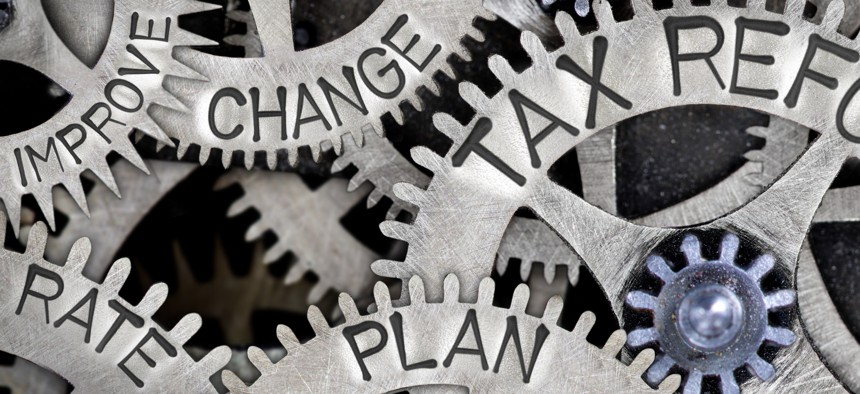State Tax Limits Can Hamper Local Fiscal Stability

istockphoto.com/Credit:EtiAmmos
States should consider adjusting policies that tightly restrict budget flexibility for cities and counties, according to a report from The Pew Charitable Trusts.
The ongoing pandemic has created economic uncertainty for many city and county governments nationwide. To minimize short-term budget dips and support long-term financial stability, states should consider adjusting policies that restrict local budget flexibility, including limits on taxation, according to a report from The Pew Charitable Trusts.
States may prohibit localities from levying a tax or restrict the tax rate, tax base or total taxes collected, and can require funds be used for specific purposes. But the report says some states, though these policies, have created significant budget challenges or amplified existing ones for localities.
Pew recommends three strategies that states should consider to help cities, counties and towns manage budget shortfalls due to the pandemic as well as future economic hardships:
1. Temporarily lift limitations to give local government officials more options to respond to extraordinary fiscal challenges, including recessions and natural disasters. For example, states could allow localities to pass temporary tax changes or use revenue that is normally restricted to specific functions for other purposes.
In a brief for the Government Finance Research Center, two Pew experts, Jeff Chapman and Alexandria Zhang, write that states can temporarily lift revenue restrictions on a case-by-case basis. For example, New Jersey Gov. Phil Murphy signed legislation in August 2020 to allow the state’s local governments to borrow for pandemic-related expenses and back the bonds with property taxes that are not subject to the state’s tax limits.
2. Adjust limitations so local tax revenues can grow as the economy recovers. Although New York state limits property tax bases, New York City’s property tax rate can fluctuate to generate the revenue needed to pay for public services, according to Chapman and Zhang. As the last act in adopting its budget, and after all other revenue has been calculated, the city sets the rate to yield the property tax revenue it needs to balance its budget.
3. Increase budget flexibility in the long term. States can offer aid to local governments to mitigate the impact of tax limitations or relief from mandates that increase costs. Chapman and Zhang write that states should consider opportunities to better align that tax base with changes in the economy that would boost both state and local revenues. Of the 45 states that have a sales tax, 44 tax online retail purchases, which the Pew officials say has been a “boon during the pandemic.”
For more information from the report click here.
Jean Dimeo is managing editor for Route Fifty.
NEXT STORY: This Week in Federal Funding





